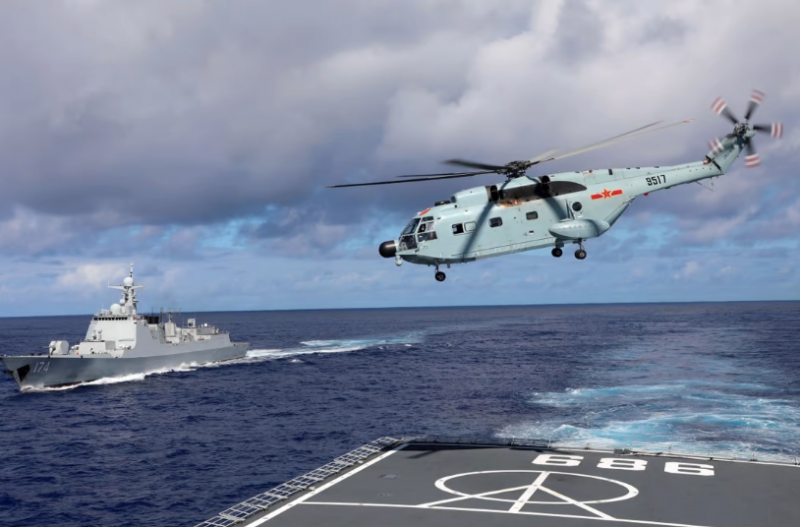
BEIJING: US House Speaker Nancy Pelosi's recent visit to Taiwan has been seen as a boon for the island's pro-independence officials as it helped unite the public and major political parties against Beijing, according to analysts. He claimed it would also affect the 2024 presidential elections, where candidates would need to be pro-American and anti-Beijing to stand a chance of winning.
Pelosi, who is second in line for the US presidency, made history by visiting Taiwan as the highest-ranking US official in 25 years. Beijing was angered by his brief visit last week as it considers the island part of its territory and sees the visit as a serious violation of its sovereignty.
The People's Liberation Army announced a series of live-fire exercises to encircle the island that ended soon after Pelosi left on Sunday.
Indeed, according to Wang Kung-Yi, head of the Taiwan International Strategic Study Society, a think tank in Taipei, only a few staunchly pro-unification organizations opposed his visit to Taiwan.
Pelosi's visit and Beijing's aggressive response, according to him, had attracted much-needed international attention to Taiwan. Wang predicted that President Tsai Ing-wen and her Democratic Progressive Party would benefit from an increase in popularity. This will help the DPP perform better in future elections, especially in the 2024 presidential election.
They claimed that the island's war games only served to fuel anti-Beijing sentiment in Taiwan, supporting the DPP's claim of being a group defending the island.
According to Arthur Wang Xin-sheng, general secretary of the Asia-Pacific Elite Interchange Association, a think tank with headquarters in Taipei, there are parallels to the Taiwan Strait Crisis of 1995–1996 in which the public supported those who were believed to be the only countries in the world.
In 1995, the People's Liberation Army launched a series of rocket launches as a response to President Lee Teng-Visit Hui in the US. However, Lee easily won the island's first direct presidential election the following year.
According to him, opposition parties such as the People's Party of Taiwan and the Kuomintang will need to change their position if anti-Beijing sentiment rises.
"The KMT, which used to be a pro-unification party, will have to go with mainstream opinion to become less friendly to Beijing and more friendly to the US," Wang said.
The KMT praised Pelosi's visit, but condemned the PLA war games, claiming they would only cause pain to the citizens of Taiwan.
Wang claimed that over the years, as it became clear that public opinion was changing, the KMT gradually shifted from its staunchly pro-Beijing position to a more Taiwan-centric position.
Wang continued, "the result will only encourage it to accelerate the process of a political shift towards becoming a more Taiwanese or local party.
He claimed that despite trying to maintain a stance that was neither anti-Beijing nor Taiwan-centered, the Taiwan People's Party, led by Taipei's mayor Ko Wen-Jae, had to maintain support. You will need to change your position.
The more pressure Beijing puts on Taiwan, the greater the public backlash in Taiwan, according to Stephen Tan, president of the Cross-Strait Policy Association, a separate think tank in Taipei.
He predicted that voters would expect political parties to resist pressure from Beijing, so they would respond in kind.
He claimed that since voters would be more concerned with everyday issues, the electoral impact could be less pronounced in local government elections in November.
He said that during the presidential election, voters are more interested in national, ideological and leadership issues.
Canada provides 12,500 open work permits to young educated people